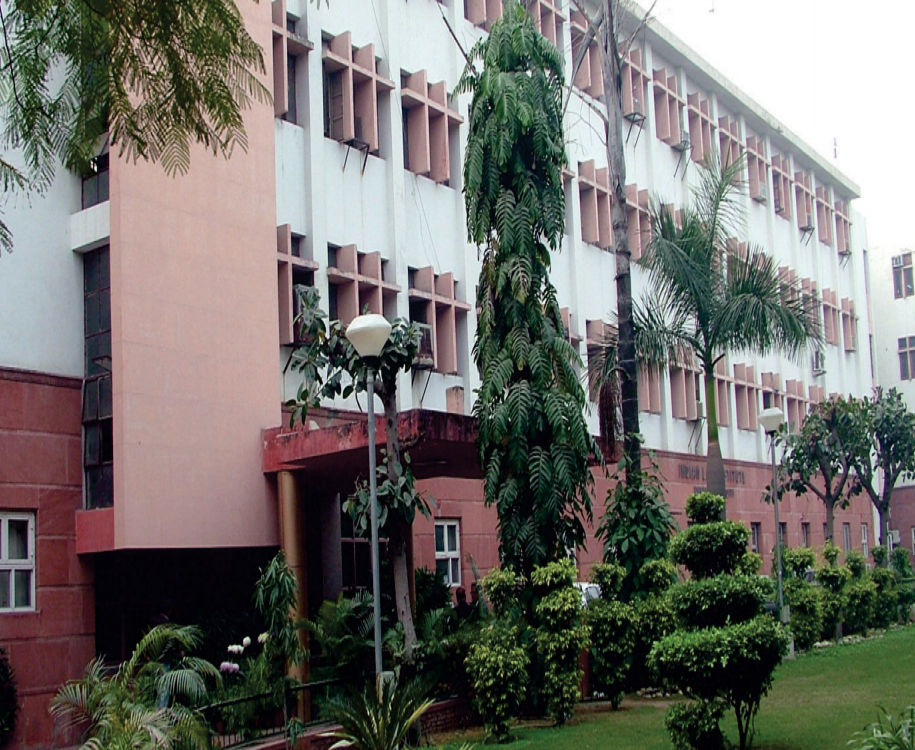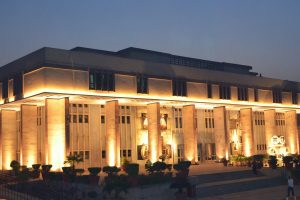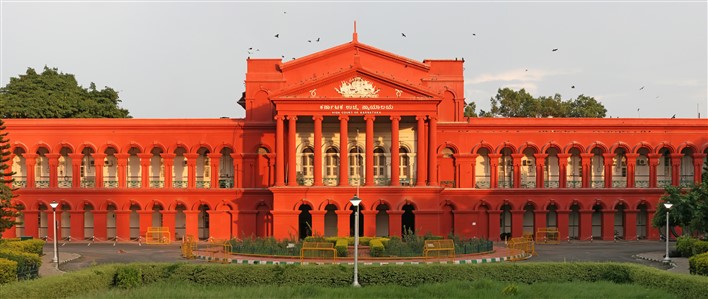Alumni of Indian Law Institute through its association namely, -AILIA got together for their inaugural of the webinar series on 20th May 2020 on Covid-19 in the august presence of the following panellist:

to discuss India’s Governance over COVID 19 with special focus on Migrant Workers
MIGRANT WORKERS AND DUTIES OF LAWYERS DURING COVID
Well begun is half done can be seen in a unique style of speech of Sr. Adv. Rakesh Dwivedi who rightly mentioned:
“Nobody can fight a battle with a fear”.
He began by describing the plight of migrant workers and problems being faced by them, evident by their mass exodus from the cities. He brought out the blatant reality that the government is not affording any protection to these workers whereas the rich people who bought Covid-19 to the country are given adequate protection.
He emphasized that the real mettle of Supreme Court is in rising to occasion and helping the downtrodden. He talked about the duty of lawyers is not losing hope and continues to help migrant labours realize their fundamental rights, no matter how many PILs get dismissed.
He urged for speedy action and said that we cannot afford to lose their trust and sympathy, which will only add to the economic depression already plaguing the country.
He quoted our Prime Minister “Jaan bhi aur Jahaan bhi” and staying that life of the courts, especially that of the highest court, be more alive – literally as well as metaphorically. He remarked that Migrant workers are too poor and are currently dwelling on highways. Its foolish to expect they could approach Hon’ble Supreme Court and can further afford to get their interests suitably represented. Therefore, the only remedy left is filing PIL by lawyers or suo motu cognizance of their grievances by the apex court. When asked about inhibition of State Governments in running trains for migrants, he remarked that Central government doesn’t need the permission of state government to run railways and neither can State Governments restrict the entry of migrant workers. The Hon’ble Supreme Court too, while hearing any PIL pending before it, may have directed the Central Government to run railways and help migrant workers stranded across the country in large numbers to reach home.
Lockdown is two dimensional- impositions and lifting of it go hand in hand. Lockdown was timely and rightly done but we failed insofar as information could have been given beforehand to enable workers in reaching home before trains stopped.
Upon being asked if Constitutional morality has been buried in this crisis.
He answered by quoting Lord Atkin from the famous case of Liversidge v. Anderson, “Amidst the clash of arms, The laws are not silent.” The speaker remarked forcefully that amidst the Covid-19 crisis, the Constitution is not silent. Fundamental Rights are still alive and cannot be suspended even in an emergency. Constitutional morality is very much alive. SC just has to open its eyes and act in the interest of vulnerable workers.
Advocacy is never short of the right arguments. He pointed we are in deep economic crisis and impact of an employment guarantee scheme for labourers are futile. Government is trying to ensure unemployment rate is kept to a minimum but a crisis is foreseen.
Taking the last question about how justified it is to blame a particular community for the spread of corona.
He answered in the negative and rather emphasized that we have to fight together and not blame even the government, what to talk of the community.
PERFORMANCE OF INDIA VIS A VIS OTHER DEVELOPED COUNTRIES
Then the second distinguished speaker Prof. (Dr) Manoj Kumar Sinha, Director ILI and Patron AILIA was invited to discuss the next issue mentioned here. Congratulating AILIA for this endeavour he began by discussing the inability of migrant workers to practice social distancing/physical distancing due to their social-economic conditions. They started losing not only their savings but also their hope and then thought of going home for they believed they shall have a better support system in their villages. The intensity of the problem was never realized by State as it is imposing stringent conditions on migrant workers and their families which are severely disabling them from returning to the safety of their home and hearth. Ticket prices itself are beyond their reach.
Workers are not bonded slaves and they have a right to leave cities and go home. They have a choice and they should be free to make it.
It was also suggested that All builders must contribute some percentage of their profits to the cause of construction workers and unclaimed funds PF etc. lying with the government may also be used for the cause of migrants. A key point discussed by the speaker was regarding International Cooperation. He highlighted that Cooperation is very important at both national and international levels equally. Poorer countries are not in a position to manage the crisis of this magnitude.
This crisis began from November 2019 onwards but WHO only declared an emergency on 30th January 2020. After Italy (the first country to declare nationwide) had declared lockdown on 9 March 2020, WHO declared it as a pandemic. Therefore, information was not provided early and we lost precious time. That being also the reason why many countries have initiated an investigation into this against China.
THE CRISIS, THE PROVISION, GOVERNMENT RESPONSE & THE LONG TERM PLAN
The third distinguished speaker Mr Amit Vashist (Regional PF Commissioner, Ministry of Labour) was thereafter invited to share his views on the third issue.
He was pained to note that there exists no legal framework for the migrant’s workers except for –Interstate migrant Labour Act of 1979.
Not to say there is a lack of Labour centric legislation’s. He laid some figures into perspective to understand the magnitude of the problem or issue. As of 2011, 503 million is the number of workforce in India as surveyed in a comprehensive report by a working group in Migration, Ministry of Urban Development and Housing. by the working group on migration. We could say their numbers are slightly more in 2020, due to the passage of time. 120 million out of these are migrant workers. 93 per cent are in informal sector workers. The said Act contains only bare minimum provisions according to the speaker.
Another Legislation, the unorganized Sector Social Security Act, 2008, is equally ineffective as it doesn’t lay down any positive right for them.
To derive any benefit from the Labour legislations in India put the entire burden of compliance on workers which is not possible for many as they are either not sensitized or empowered enough. We are required to move ahead with this infatuation of proving the employee-employer relationship, which is not easily identifiable if we want to work for the welfare of workers.
The Building and construction workers welfare Act, 1998, which deals with unorganized sector construction workers and lays down that migrants workers must be registered, but statistics say that registrations available do not account for even 10 per cent of the actual strength due to lack of implementation measures. While discussing the “way ahead.”
The Occupational Safety, Health and Working Conditions Code, of 2019 was suggested as a game-changer, especially after the welcome developments due to the interventions of the Standing Committee of the Parliament.
Media Partner of the Event














Add Comment